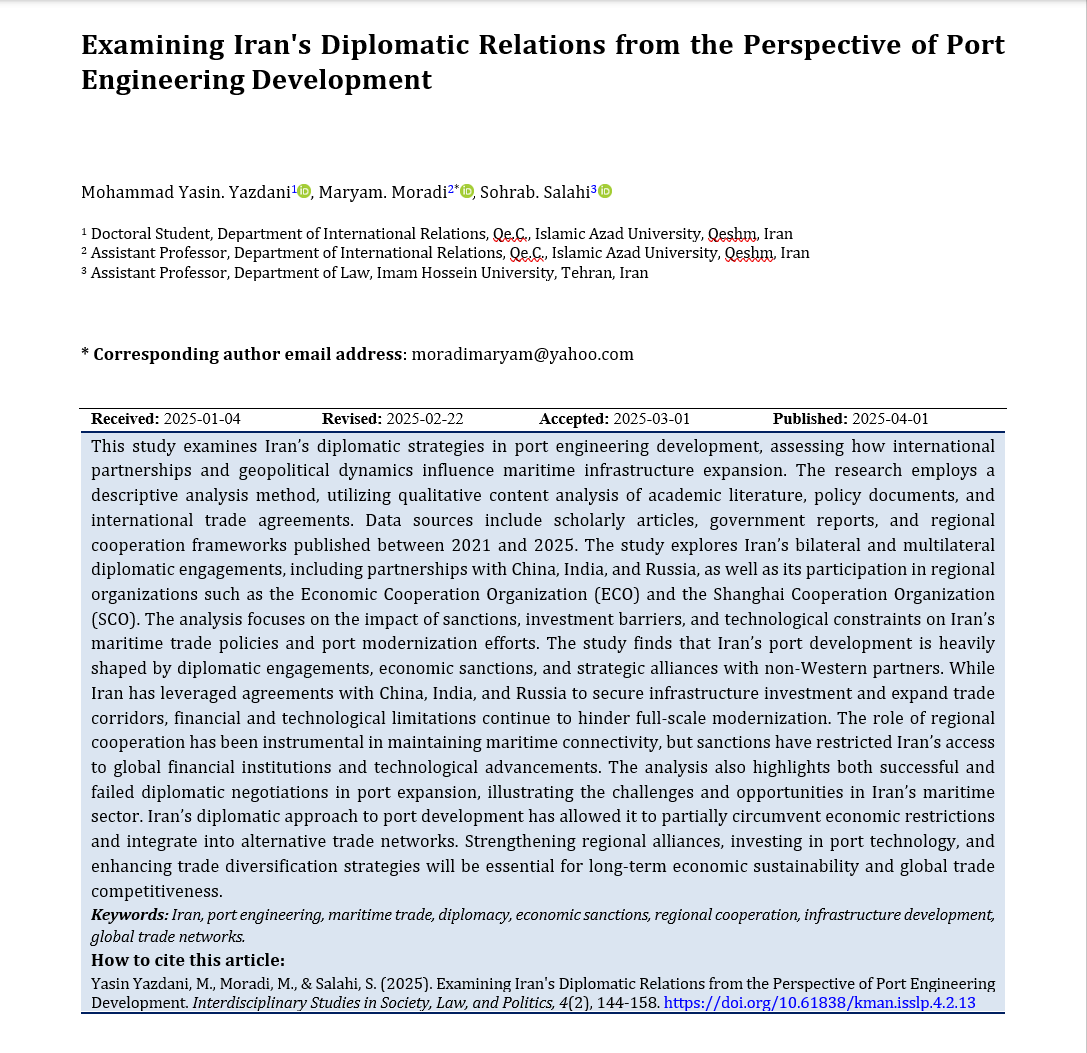Examining Iran's Diplomatic Relations from the Perspective of Port Engineering Development
Keywords:
Iran, port engineering , maritime trade , diplomacy , economic sanctions , regional cooperation , infrastructure development , global trade networksAbstract
This study examines Iran’s diplomatic strategies in port engineering development, assessing how international partnerships and geopolitical dynamics influence maritime infrastructure expansion. The research employs a descriptive analysis method, utilizing qualitative content analysis of academic literature, policy documents, and international trade agreements. Data sources include scholarly articles, government reports, and regional cooperation frameworks published between 2021 and 2025. The study explores Iran’s bilateral and multilateral diplomatic engagements, including partnerships with China, India, and Russia, as well as its participation in regional organizations such as the Economic Cooperation Organization (ECO) and the Shanghai Cooperation Organization (SCO). The analysis focuses on the impact of sanctions, investment barriers, and technological constraints on Iran’s maritime trade policies and port modernization efforts. The study finds that Iran’s port development is heavily shaped by diplomatic engagements, economic sanctions, and strategic alliances with non-Western partners. While Iran has leveraged agreements with China, India, and Russia to secure infrastructure investment and expand trade corridors, financial and technological limitations continue to hinder full-scale modernization. The role of regional cooperation has been instrumental in maintaining maritime connectivity, but sanctions have restricted Iran’s access to global financial institutions and technological advancements. The analysis also highlights both successful and failed diplomatic negotiations in port expansion, illustrating the challenges and opportunities in Iran’s maritime sector. Iran’s diplomatic approach to port development has allowed it to partially circumvent economic restrictions and integrate into alternative trade networks. Strengthening regional alliances, investing in port technology, and enhancing trade diversification strategies will be essential for long-term economic sustainability and global trade competitiveness.
Downloads

Downloads
Additional Files
Published
Submitted
Revised
Accepted
Issue
Section
License
Copyright (c) 2025 Interdisciplinary Studies in Society, Law, and Politics

This work is licensed under a Creative Commons Attribution-NonCommercial 4.0 International License.





